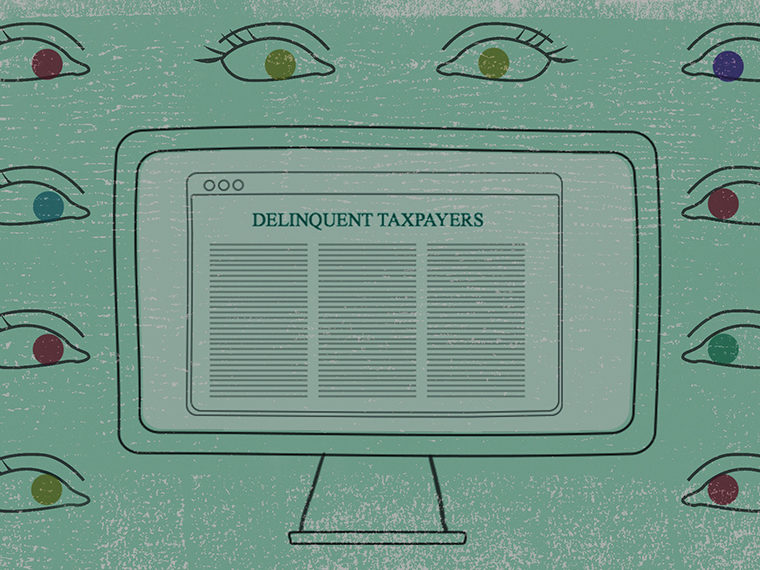It’s not just sheep — even go-getters can be susceptible when they feel less in control
Conspiracy theories are not a 21st-century-only phenomenon, but Twitter, Facebook and YouTube (and the bots that exploit them) are proving to be powerful accelerants.
As tracked by Google Trends, search terms deep state and flat earth are just two examples of recent conspiracy theories attracting growing interest, though they trail behind Pizzagate, the 9/11 attacks as an “inside job” and the enduring belief that Lee Harvey Oswald did not act alone to assassinate JFK.
In a world where conspiracy beliefs increasingly find voice, understanding the root of who is or isn’t susceptible becomes a potential means to curb the fantasies, which can have profound public policy impact.
Opt In to the Review Monthly Email Update.
Efforts to contain a 2014 Ebola outbreak in Guinea, Liberia and Sierra Leone were complicated by conspiracy theories that pharmaceutical companies had created the disease to profit from providing a cure, and by the meme alleging that frontline aid workers were planted to spread the disease.
Prior research has explored factors such as age, education level and personality traits (narcissism, self-esteem) that may induce conspiracy belief.
In an article published in Personality and Social Psychology Bulletin, UCLA Anderson’s Jennifer Whitson, Penn State’s Joongseo Kim, Northwestern’s Cynthia S. Wang, Ohio State University’s Tanya Menon and Ball State University’s Brian D. Webster examine how a sense of control over one’s environment impacts conspiracy belief.
The researchers used an established rubric that sorts people into two basic camps: “promotion” focused people are go-getters driven by goals and aspirations that they believe can be achieved with personal effort. The “prevention” focused crowd is more head-down, concerned about not screwing up and inclined to go with the flow.
In two experiments, participants were primed to fall into a prevention or promotion mindset (or left unmanipulated to serve as a baseline or control group). One field study explored the conspiratorial leanings of more than 200 members of the U.S. military who were put through tests to determine whether they tended to be promotion or prevention focused.
The researchers found that people with a dominant promotion focus are less likely to glom on to a conspiracy theory than a baseline group. But the researchers also found that their hypothesis going into the study — which had posited that “prevention” types would be more hospitable to conspiracy theories — did not play out.
They teased out that a heightened sense of personal control among people with a promotion focus serves to tamp down conspiratorial belief.
“Prevention focus does not elevate conspiratorial beliefs; rather it is promotion focus, and its concomitant sense of personal control, that acts to dampen these patterns of cognition.”
Of interest to anyone with an eye on shifting public discourse, messing with an individual’s sense of personal control, the researchers established, is a lever that shifts susceptibility to conspiratorial inklings. While “promotion-focused individuals’ inflated sense of personal control reduces the drive to see structure that can cause increases in conspiratorial beliefs,” the researchers found that lever can be pushed and pulled. When researchers manipulated the go-getters to lose their sense of control, the subjects’ belief in conspiracies rose.
That suggests that one way, potentially, to decrease belief in a conspiracy is to focus on how to increase an individual’s personal agency. For instance, the researchers posit that if an organization such as the Centers for Disease Control and Prevention finds itself in the middle of a scare that might incite conspiracy (see: Ebola in Africa, 2014), it might appeal to an individual’s ability to take steps to stay healthy. That play to personal control could reduce the leverage of a conspiracy.
Conversely, their findings suggest it may be unwise for any large organization or government agency to exude an air of “We’ve got this, trust us” big brotherism.
In the first study, 278 participants were primed to fit into one of three camps: a promotion-focus mindset, a prevention-focused mindset or a neutral mindset that served as the study’s control group. Then everyone was presented with a few stories that float a hint of conspiracy.
In one scenario, participants were told about a large bank going belly-up in 1985, causing it to file for bankruptcy. Massive job losses occur and shareholders are wiped out. A formal government investigation determines that management misconduct is not to blame, but some people dispute the government’s official line and are convinced that management engaged in illegal accounting. This push back against the government’s conclusion rests on the recollections of a disgruntled janitor who described “a vague recollection of overhearing company executives discussing accounting techniques used to mask financial losses.”
Another scenario claimed the U.S. government pushed for the use of compact fluorescent lightbulbs, “because such lights make people more obedient and easier to control.” The last out-there story: “Vapor trails left by aircraft are actually chemical agents deliberately sprayed in a clandestine program directed by government officials.”
Participants were asked to weigh in on whether they saw a conspiracy in the bankruptcy case, or agreed with the statements about the bulbs and airplane vapors, on a scale of 1 (don’t agree) to 7 (agree). The participants in the “promotion” group had the lowest average buy-in to conspiracy theories, with a score of 3.04, compared to 3.4 for the baseline group. But pushing back against the researchers’ initial notion that prevention focus raises susceptibility to conspiracy theories, this group’s average score of 3.2 wasn’t much different than the baseline group, though it was indeed higher than the promotion-focused group.
The researchers then ventured out into the real world, studying how more than 200 members of the military self-sort into promotion or prevention personalities, and their perceived sense of personal control. The two camps were asked to weigh in on scenarios in which a superior’s decisions could be viewed through a conspiratorial lens: for instance, getting orders for a post in Afghanistan rather than Hawaii.
Those in the promotion-focus group had a stronger sense of personal control and a lower level of conspiratorial beliefs than the prevention-focused group.
Having established a correlation between promotion-focus and sense of personal control, the researchers’ final experiment looked at whether the correlation was causal.
In a lab experiment, they manipulated 215 college students’ sense of being promotion- or prevention-focused. Once subjects were sorted into those two camps, the researchers messed around with the participants’ sense of personal control, and ran them through the bankruptcy and light bulb conspiracy theories.
Among the promotion-focused group, the average conspiracy score was higher (3.24) when those participants were manipulated to not have a sense of personal control than when they were primed to feel in control (2.85). There was no such gap among the prevention-focused group.
“When people are promotion focused,” write the researchers, “they exert personal control in their environment — which leads them to see their environment as controllable rather than controlling.”
And when they don’t exert personal control, the conspiracy gremlins can take greater hold. This malleability of personal control could be a means to reduce the conspiratorial beliefs among prevention-minded people. Increasing their sense of personal control may coax them to be less susceptible to conspiracies.
Featured Faculty
-
Jennifer Whitson
Assistant Professor of Management and Organizations
About the Research
Whitson, J., Kim, J., Wang, C.S., Menon, T., & Webster, B.D. (2018). Regulatory focus and conspiratorial perceptions: The importance of personal control. Personality and Social Psychology Bulletin, 45(1), 3–15. doi: 10.1177/0146167218775070






